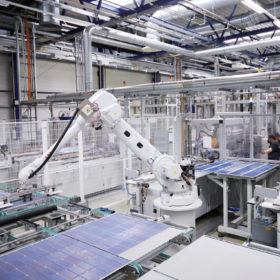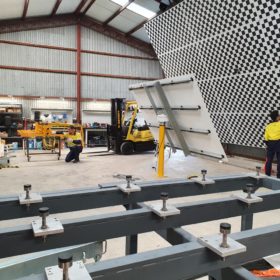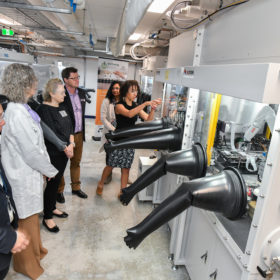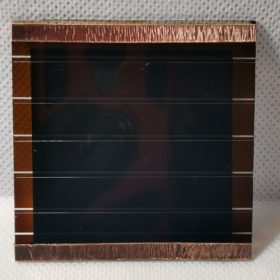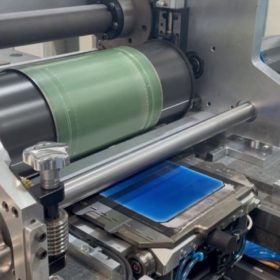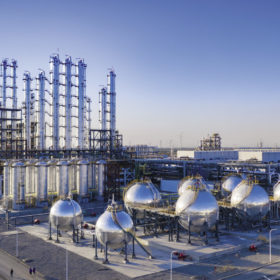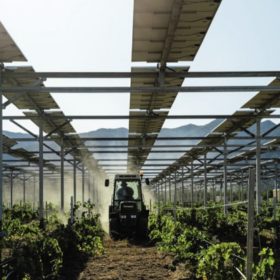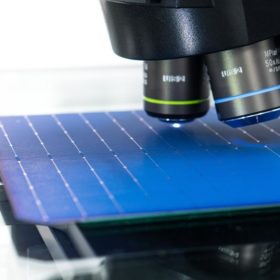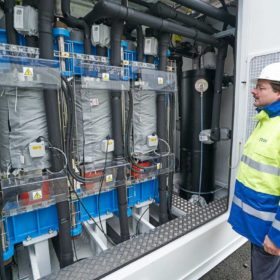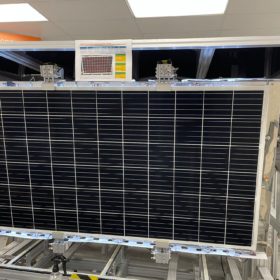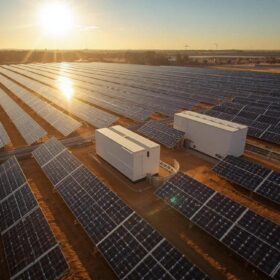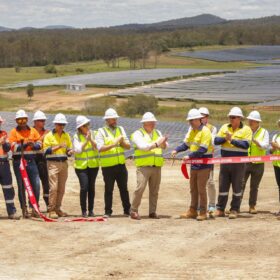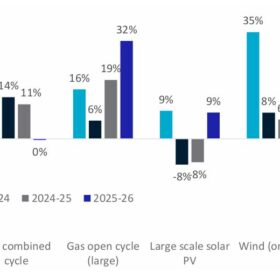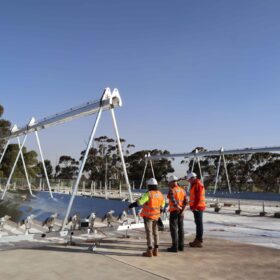Global installed PV capacity could hit 260 GW in 2022
The International Energy Agency Photovoltaic Power Systems Programme (IEA PVPS) estimates that 173.5 GW of new solar capacity was installed in 2021, and that figure might rise to 260 GW in 2022. pv magazine spoke with the co-chair of the European Solar Manufacturing Council to look into the figures.
CSP specialist Vast Solar plans Australian ‘gigafactory’
Concentrating solar thermal power specialist Vast Solar has unveiled plans to establish a CSP “gigafactory” to manufacture its heliostats and solar receivers in Australia after a successful trial at a pilot facility in Queensland.
Victorian university opens ‘advanced’ battery hub for testing and manufacture
Victoria’s Deakin University today launched its $10.3 million (USD 6.5 million) “world-class” facility for advanced battery design, fabrication and testing, in Burwood, a suburb in Melbourne’s east.
Australian manufacturer achieves 32% efficiency for inorganic perovskite solar cell
Australian manufacturer GreatCell has built a cell with roll-to-roll coating technology. It designed it without a hole transport layer (HTL) and used carbon composite back contacts, which offer excellent electrical conductivity.
PV production equipment sales soaring in Europe
According to VDMA, a German engineering association, there are now more orders coming in for German production equipment from Europe than from China. Nevertheless, shipments to Asia remain dominant.
Global polysilicon capacity could hit 536 GW by end of 2023
Clean Energy Associates said in a new report that it expects polysilicon production capacity to exceed PV installations next year.
Semi-transparent agrivoltaic module being developed by UNSW, Tindo
University of New South Wales researchers have teamed up with Tindo Solar to develop a line of semi-transparent modules, specialised for agrivoltaic cropping, which will use nanoparticles tuned to capture different parts of the light spectrum. “There is evidence you don’t need the full spectrum and some plants will work even better if you provide them with only part of the spectrum,” project lead and UNSW Associate Professor Ziv Hameiri tells pv magazine Australia. Crucially, he says, the project will also open a line between farmers, solar researchers and industry, creating the potential for mutual benefits.
SunDrive lands $21 million to scale copper-based solar tech
World-beating Australian solar technology company SunDrive has completed a new $21 million (USD 13 million) funding round which will help commercialise its revolutionary solar cell technology that replaces silver with copper to improve solar panel efficiency and reduce costs.
WA teams with ITM to explore electrolyser manufacturing potential
The Western Australia government is partnering with United Kingdom-based electrolyser manufacturer ITM Power and Germany’s Linde Engineering in a $450,000 (USD 278,106) study to develop a business case for the manufacturing of renewable hydrogen electrolysers within the state.
Allup targets solar panel industry with high-grade silica
Australian minerals explorer Allup Silica aims to target the booming solar panel industry after independent tests confirmed the presence of premium silica sands – a key component of high-end glass manufacturing – at its Sparkler project in Western Australia.
